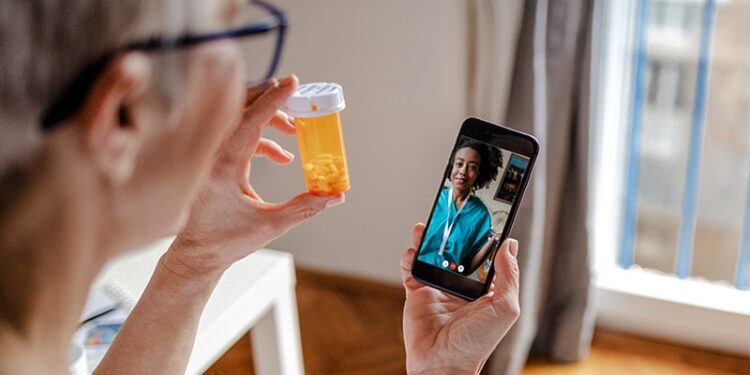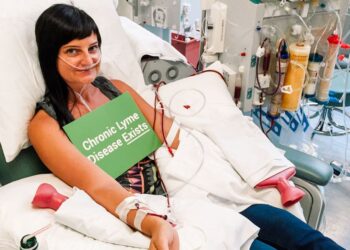TOPLINE:
Prescribing stimulants for teens and adults with attention-deficit/hyperactivity disorder (ADHD) via telehealth was not associated with increased risk for substance use disorder (SUD) compared with in-person prescribing, a new study suggested. However, receiving an initial stimulant prescription via telehealth was linked to a sixfold higher risk for stimulant use disorder (stimUD).
METHODOLOGY:
- Researchers analyzed electronic health record data for nearly 8000 US patients with ADHD from 2020-2023. Participants were aged ≥ 12 years (52% > 26 years, 25% 18-25 years, and 23% 12-17 years), had received initial stimulant prescriptions during the study, and did not have a non-nicotine SUD diagnosis at baseline.
- Outcomes were the development of stimUD or non-nicotine SUD, defined as meeting one of the three criteria: a diagnostic billing code, a positive response on patient-reported outcome measures, or receipt of medications approved by the FDA for SUD treatment.
- Patients were grouped on the basis of whether their relationship with the prescriber was exclusively via telehealth (n = 720) or included in-person contact (n = 7224); and whether the stimulant prescription was issued via telehealth (n = 3981) or in-person (n = 3963).
- Covariates included psychiatric comorbidities, demographic factors, and characteristics of clinical care.
TAKEAWAY:
- After adjusting for covariates, SUD risk was not significantly higher among patients with a telehealth-exclusive relationship with their prescriber (adjusted odds ratio [aOR], 0.9; P = .35) or a stimUD (aOR, 1.3; P = .72) than among those with in-person relationships.
- Receiving an initial stimulant prescription via telehealth was associated with a significantly higher risk for stimUD (aOR, 6.2; P = .02) but not SUD (aOR, 1.2; P = .23) than receiving that via in-person.
- For patients aged 26 years or older, receiving initial stimulant prescriptions via telehealth was associated with a significantly higher risk for subsequent SUD (aOR, 1.5; P = .03) than receiving that via in-person. This association was not significant in younger age groups.
IN PRACTICE:
“Our study suggests that, generally, telehealth-based relationships — which make healthcare more accessible — can be safe and don’t increase the risk of substance use disorder,” lead study investigator Vinod Rao, MD, PhD, Massachusetts General Hospital, Boston, said in a press release.
However, the findings, “particularly for stimUD, require replication in other healthcare settings,” the investigators wrote.
SOURCE:
This study was published online on June 11 in The American Journal of Psychiatry.
LIMITATIONS:
Limitations included a reliance on administrative claims data, which captured filled prescriptions but not actual medication use, potentially introducing exposure misclassification. Diagnoses of SUDs were according to coded claims rather than clinical assessments, which may have led to underreporting or misclassification. The analysis was also limited to commercially insured participants, reducing the generalizability of the findings. Additionally, race and ethnicity data were incomplete, and long-term outcomes beyond 12 months were not assessed.
DISCLOSURES:
This study was funded by research awards from the FDA and the National Institute on Drug Abuse. Two investigators reported receiving research funding from the National Institutes of Health and private foundations, receiving support for clinical program development from regional health organizations and foundations, holding consultancy or editorial roles with government, nonprofit, and academic entities, or having intellectual property interests related to pharmaceutical and digital therapeutics collaborations. The other five investigators reported no relevant financial relationships.
This article was created using several editorial tools, including AI, as part of the process. Human editors reviewed this content before publication.
Source link : https://www.medscape.com/viewarticle/telehealth-vs-person-adhd-prescribing-which-safest-2025a1000hi6?src=rss
Author :
Publish date : 2025-07-01 09:54:00
Copyright for syndicated content belongs to the linked Source.













